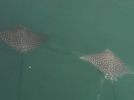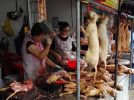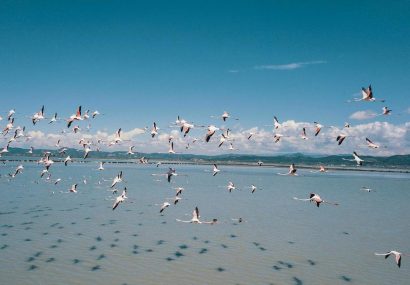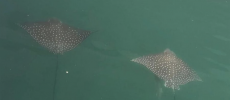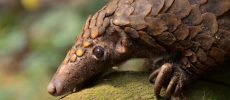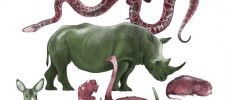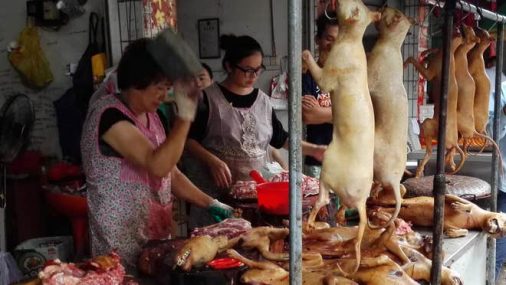
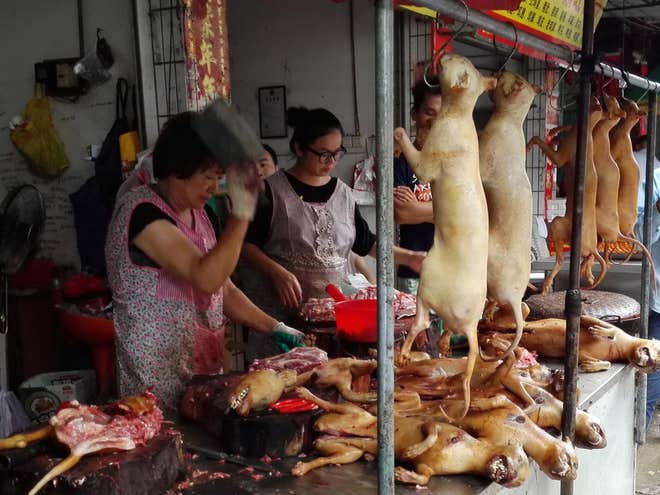
A second city in China has banned the consumption of dogs, cats and some wild animals – a move campaigners hope could signal an end to the trade of all wildlife at “wet markets” across the country.
The ban in Zhuhai follows a decision made by authorities in Shenzhenearlier this month to prohibit dog and cat meat. The new rules come into force in Zhuhai on 1 May, according to state-run China News.
A spokesperson for the animal charity Humane Society International described it as “thrilling news”, and said it could be the start of a domino effect of animal protection legislation across China.
It comes as The Independent’s Stop the Wildlife Trade campaign calls for an international effort to tighten restrictions on wet markets to reduce our risk of future pandemics.
The coronavirus outbreak is believed to have originated at a wet market in Wuhan where exotic animals were sold – making the jump to humans from animals kept in close proximity.
Last week China’s ministry of agriculture and rural affairs stated for the first time that dogs should be treated as pets rather than livestock.
Yet in the absence of a national ban, other cities in mainland China are believed to be considering their own legislation to stop the consumption of dogs and cats.
“Zhuhai’s ban on dog and cat meat eating is thrilling news for all those in China and around the world who have campaigned for so long to end this brutal trade,” said Wendy Higgins, Humane Society International’s director of international media.
“Coming so soon after Shenzhen’s ban and the government’s historic statement classifying dogs as pets, we hope this is the start of a domino effect of progressive legislation across China with other cities following suit.”
She added: “This isn’t just good news for animal protection, it’s also very good news for public health.”
The Zhuhai authorities said the consumption of some wild animals will also be banned, based on the guidance given by the ministry of agriculture and rural affairs. However, it means animals such as alpaca, ostrich, silver fox, blue fox and raccoon dog – considered “special livestock” – will still be allowed to be traded as meat.
Dr Teresa Telecky, vice president of wildlife at Humane Society International, said: “Listing wild animals, including foxes and raccoon dogs, as ‘special livestock’ is concerning.
“Rebranding wildlife as livestock doesn’t alter the fact that there are insurmountable challenges to keeping these species in commercial captive breeding environments, and that their welfare needs simply can’t be met.”
Dr Jane Goodall DBE has backed The Independent’s campaign calling on governments to work together to impose stricter controls on the trade, sale and consumption of wild animals.
The renowned conservationist said: “If we go on treating animals the way we are that is going to hit back on us, as it has.”
Writing for The Independent, the United Nations’ biological diversity chief, Elizabeth Maruma Mrema said: “Global wildlife trade and live animal markets, where live fish, meat and wild animals are sold, are important risk factors for zoonotic disease spillover.
An estimated 10 million dogs a year are killed for China’s dog meat trade, which is thought to be consumed infrequently by less than 20 per cent of the population, according to Humane Society International.
A nationwide survey in 2016 suggested a majority of Chinese citizens think the dog meat trade should be completely banned.
Ms Higgins said: “It would seem that in the absence of a national ban, cities are taking matters into their own hands and reflecting the mood of the people.”
Source: Independent
 Previous Article
Previous Article Next Article
Next Article

